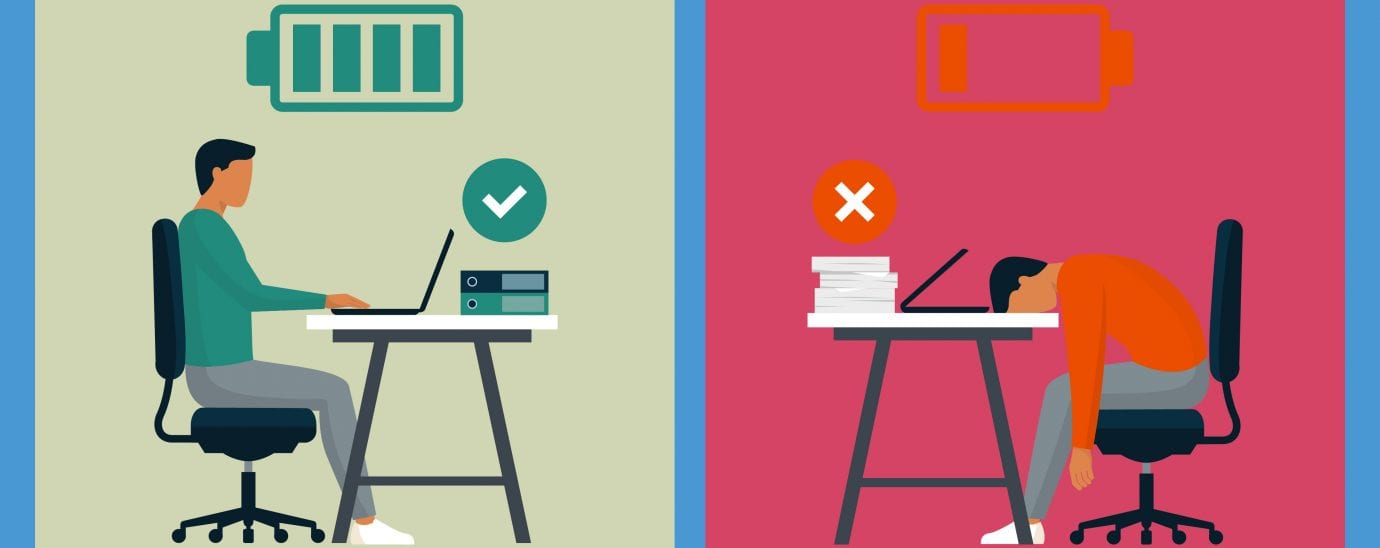Hybrid work model improves mental health for over a third of UK workers

As lockdown restrictions in the UK continue to lessen, and many companies are planning how, when and if employees will return to a post-pandemic workplace, Envoy’s UK research reveals the benefits that hybrid and flexible working has on employee wellbeing and mental health, as well as sentiments about returning to work and what will help drive this.
Envoy, the workplace platform dedicated to getting the world back to work, has today released results from its UK Return to the Workplace Report, examining employee attitudes on office returns one year after the pandemic caused widespread remote work. While most employees (59%) remain concerned about the health and safety risks posed by a return to the office, our data reveals employees are keen to return in some capacity, with a hybrid and flexible work model as the preferred solution.
The findings reveal that 3 in 4 (70%) UK workers believe a hybrid model—involving the flexibility to choose when and where to work—would result in personal benefits, with 34% saying it would improve their mental health, and 41% stating it would benefit their work-life balance. So much so that over half (55%) of respondents said they would look for another job if their employer didn’t offer a hybrid work model. The preference for hybrid working also changes by age group, with 78% of Gen Zs stating they would choose to leave compared to 23% of Boomers.
The report comes as lockdown restrictions in the UK continue to lessen, and many companies are planning how, when and if employees will return to a post-pandemic workplace.
Larry Gadea, Founder and CEO at Envoy said: “The findings highlight that employees want the flexibility to return to the workplace and are keen to regain work-life balance. Companies that want to see employees return with confidence will need to not only create a safe environment but empower employees to collaborate in-person at a schedule that works for them. Supporting employees to do their best work will look different in every company. In any scenario, companies will need insight into who, when, and how people use their workplaces, and technology that makes it easy to adapt their workplace experience to mirror employees’ changing needs—which is exactly what Envoy aims to empower.”
Key report findings include:
- Concerns over relaxing COVID measures are high amongst UK workers
- Over half of respondents (59%) are concerned about their workplace relaxing COVID measures too early, with 64% of women expressing concern.
- Just as many respondents (59%) reported that they were worried about a return to the office. Women were also most concerned at 65%.
- A majority of employees, almost 3 in 4 (70%) of respondents believe their company should require employees to get a vaccine before they are permitted to go back to the office in person.
- Burnout is rife, especially in younger workers
- Since March 2020, almost 4 in 5 (78%) of respondents have felt close to burnout, with a staggering 88% of women reporting burnout (men at 68%).
- Digging further into the demographics, 97% of respondents in Gen Z have felt close to burnout in comparison to 50% of Boomers.
- 64% of respondents are concerned about experiencing job-related burnout in the future. Women are more concerned about burnout than men (70% vs 59%).
- Burnout concerns are even more pronounced among people in Gen Z (under age 25) at 81%, with Boomers (57-75 years of age) only totalling 36%.
- Hybrid work is a priority for many employees
- Because of the flexibility a hybrid work model provides, 41% of respondents say that hybrid work would improve their work-life balance. This sentiment is highest amongst Millennials and Gen Xers—those groups most likely to be parents of young children—at 44%.
- Over a third (34%) of respondents stated that a hybrid work model would improve their mental health. Of all age groups, Millennials were most likely to agree with this statement at 40%.
- Almost 3 in 4 (70%) of respondents stated that a hybrid model would result in personal benefits, such as improving work/life balance, improving their mental health, saving time commuting, and saving on the cost of living. Slightly more women noted the personal benefits (73%) than men (67%).
- Employees want to return to workplaces together
- If given a choice to work from home or the office, the top factor that influences where an employee decides to work is who else plans to be at the workplace that day (including boss, friends, teammates, or if too many people are present) at 50%. This indicates that some work is better suited for a collaborative environment.
READ MORE:
- Curve’s eagerly anticipated crowdfund goes live
- ServiceNow delivers new security integrations with Microsoft
- Why customer conversations are vital for brand survival in a post-COVID-19 world
- What can corporates learn from digital transformation in the COVID era?
Businesses are now at a crossroads. Do they double down on a remote working future, or prepare to support both environments? Envoy’s research reveals that employees want the option to choose.
For more news from Top Business Tech, don’t forget to subscribe to our daily bulletin!
